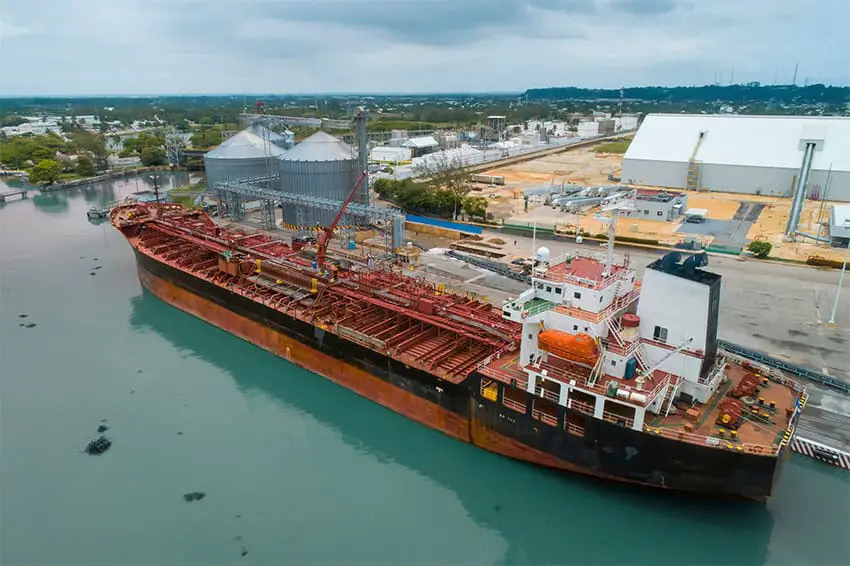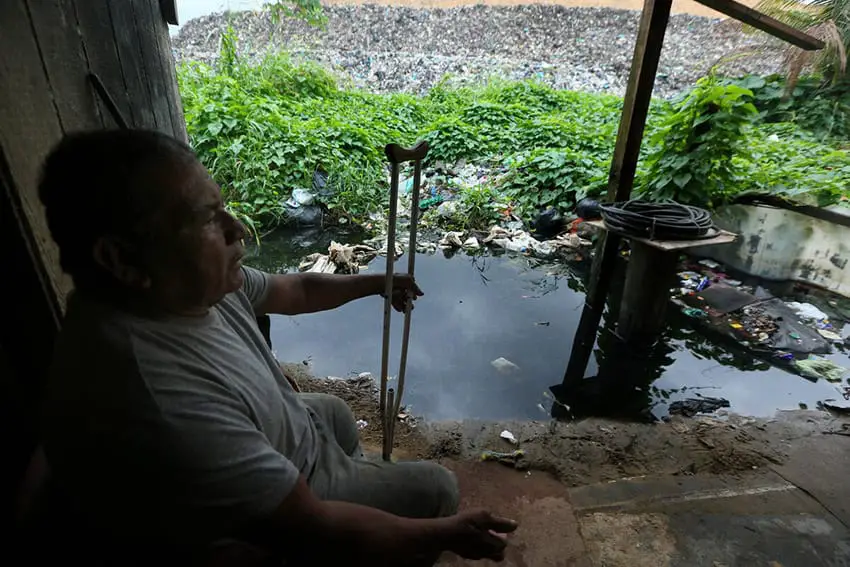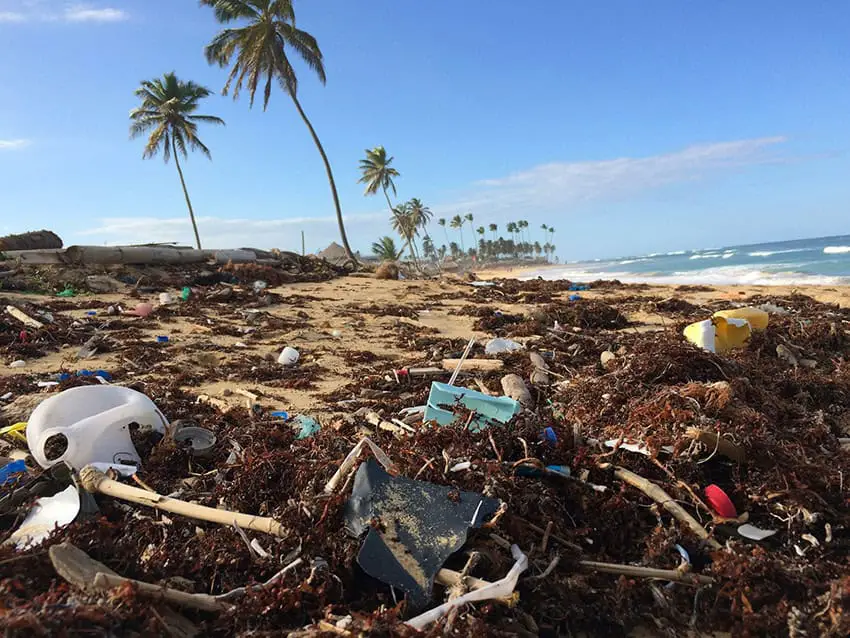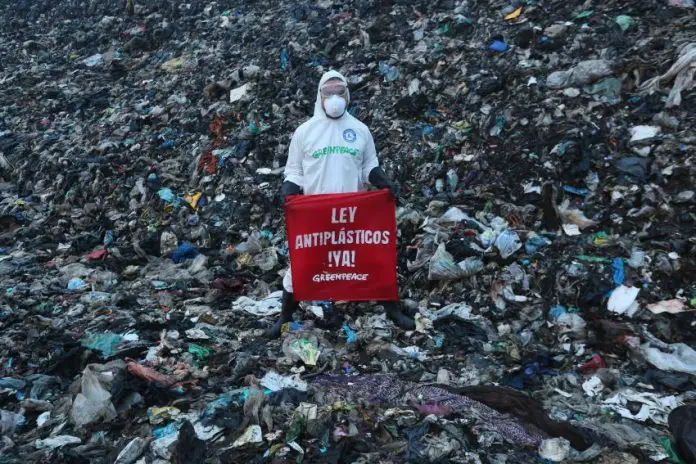Activists from Greenpeace Mexico and other organizations demonstrated Sunday at a sprawling, open-air garbage dump in the state of Veracruz, denouncing the country’s growing plastic waste crisis and calling for urgent action.
The protesters — some dressed in hazardous material suits and holding a huge banner reading “Anti-Plastic Law Now!” — temporarily blocked operations at the Villa Allende landfill in Coatzacoalcos, a major port city in southern Veracruz on the Gulf of Mexico.

According to activists with the Allende 213 environmental group, the 33-year-old dump began as a facility for waste only from the locality of Villa Allende.
Now, even though the State Attorney General for Environmental Protection (PMA) has determined the dump should have already been closed, it continues to operate, receiving an estimated 350 to 400 tons of domestic and industrial waste daily, with an estimated 45-60 daily trips by garbage trucks from throughout Coatzacoalcos, according to a Greenpeace Mexico press release.
And since there is no tangible division between the landfill and nearby homes and businesses — some less than 500 meters away — Villa Allende is being impacted with air, soil, subsoil and water pollution problems, Greenpeace Mexico noted. Nearby residents have long reported issues with noxious odors and health concerns linked to the facility’s operation.
However, the Sunday protest was about more than just Villa Allende.

The activists called for immediate government intervention to tackle plastic pollution and improve management of overflowing and unregulated garbage dumps throughout the nation — where single-use plastics such as PET bottles, industrial plastics and construction materials are usually the most commonly found items.
“Facilities like this exacerbate environmental and public health risks, particularly for nearby communities,” Greenpeace said in a statement.
The activists urged national and local authorities to more strictly enforce existing legal bans on disposable plastics while also prioritizing investments in infrastructure for waste segregation, recycling and composting. They also called for incentives for sustainable alternatives.
Mexico generates an estimated 1.9 million tons of plastic waste annually, but less than 10% is recycled, according to Greenpeace.

The newspaper El País cited a report by the Ministry of Environment and Natural Resources (Semarnat) indicating the situation of plastic pollution on the coasts has reached critical levels, especially in Oaxaca, Guerrero, Chiapas and Veracruz.
Across Mexico, landfills and dumps have become flashpoints for community grievances over pollution and public health risks.
The mayor of Coatzacoalcos, Amado Cruz, has said he will close the Villa Allende dump this year in coordination with Semarnat. However, the local “government has filed an appeal against the closure and so far the dump remains” open, Greenpeace noted.
Greenpeace Mexico urged citizens to sign a petition that aims to get an anti-plastic law presented to the Senate.
With reports from El Universal, Liberal del Sur and El País
